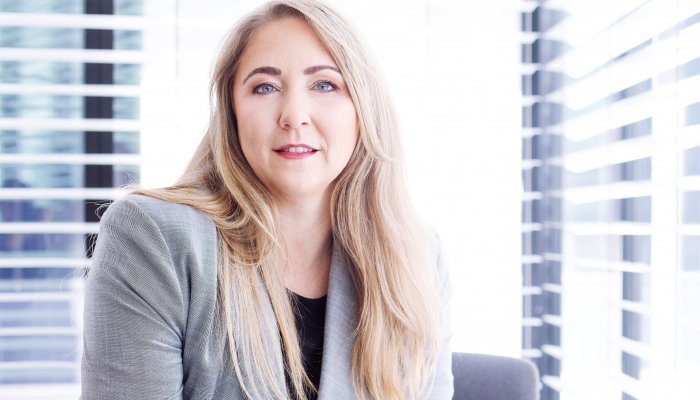In February 2023 heavy rainfall in South Africa caused extensive damage to basic infrastructure such as roads and bridges. The record-level flooding affected homes, businesses and communities countrywide, resulting in President Cyril Ramaphosa declaring a national state of emergency in seven provinces. Torrential downpours continued in March, September and in December. And already, experts have warned that there will likely be more extreme weather events over the course of 2024.
Given these more frequent calamities, it’s not surprising that there is growing anxiety about the alarming state of our planet and uncertainty about who is going to take responsibility for fixing the problem. A single company, country, or continent's response will, however, not be sufficient.
Massive collaboration is required across public and private sectors to address climate impacts and to find innovative solutions to solving the many climate conundrums we are going to face in the decades ahead.
Personal and public choices
As a leading African business school, GIBS aspires to pursue practices that have a net positive effect on the environment, and also aspires to a responsibility to help business leaders understand that there is a cost to action and to inaction.
In November 2022, GIBS was among six leading African business schools that launched Business Schools for Climate Leadership Africa (BS4CL Africa), a unique partnership to help present and future leaders combat the climate crisis.
This initiative of cross-sector collaboration and knowledge sharing aims to accelerate progress towards the Paris Agreement and the UN Framework Convention on Climate Change. BS4CL Africa brings together schools of business to build a collaborative framework for climate action so that business education curricula that match the needs and adapt to the realities of the African continent can be developed.
On campus, GIBS has a clear approach to sustainability that focuses on three areas of justice as they relate to the UN Sustainable Development Goals. These are digital justice, climate justice and social justice. According to GIBS Dean Prof. Morris Mthombeni, climate leadership cannot be achieved without these three justices being restored in society.
Prof. Mthombeni has been appointed to the board of Principles of Responsible Management Education (PRME), an initiative of the United Nations Global Compact that aims to raise the profile of sustainability in business and management education. We also have the GIBS Sustainability Initiatives Africa, which is led by Dr. Jill Bogie. This is an integrating platform that is the face of the work we do around sustainability, with the climate leadership agenda at the core.
In the 2022 fiscal year, we initiated a step toward our sustainability goals by measuring our carbon emissions for the first time. This crucial measurement provided us with a baseline from which we can set targets, assess our progress, and identify areas where we can reduce our environmental impact effectively.
We also conducted an energy audit during the 2023 financial year as an initial phase of our plan to reduce our reliance on ecologically unsound energy sources. This audit identified areas where energy efficiency can be improved while ensuring the security of energy so that we can successfully continue our academic mission given the unreliable electrical grid supply. The audit also provided targeted strategies for reducing our carbon footprint. Budget has already been ring-fenced for a possible solar energy solution on campus which offers a renewable and environmentally friendly alternative to conventional energy sources. As a business, we ourselves are affected by the climate crisis and are taking steps towards redress. We also want to equip and empower leaders to do the same, and one of the major steps we’ve taken is updating our academic offering to reflect current pressing needs.
Equipping leaders
Business schools play a central role in creating climate-aware, responsible business leaders who recognise the scale and urgency of the problem and inspire action to address it. Business schools around the world have responded to the call for action and developed various sustainability and climate learning programmes. GIBS prides itself on its ability to compete with the best in the world and recognised that more needed to be done to create sustainability champions and climate leaders in business.
In response to this, GIBS has established an MBA programme solely focused on climate leadership and sustainability, which is being run for the first time in 2024. We have 15 students who have signed up for the stream, which focuses on creating a foundational knowledge of climate change risks and opportunities, stimulating critical thinking to assess and interpret climate challenges, and developing practical and theoretical proposals for potential solutions and actions that business can take.
It will be an immersive experience to ensure that students connect in a personal way with the reason why climate matters. This will include a trip to the University of Exeter in the United Kingdom, which is home to the UK’s top five most influential climate scientists.
Students are also required to take three compulsory electives that are all focused on sustainability and climate matters and will be exposed to climate leaders and subject-matter experts in the focused workshops.
The course will equip them with the theoretical knowledge and confidence to ask the challenging questions of their business leaders and to become climate champions who are fearless in driving positive change. We need broad solutions to solve for the complexity of climate change and sustainability and that requires a depth and breadth of perspectives. The more MBA students we have that are equipped to respond to sustainability issues, the greater our chances of reaching our sustainability goals.
As a species, we are integrally linked to the world around us and its planetary boundaries and yet there is often a lack of understanding about the broader negative impacts of climate change. Everyone has a role to play in ensuring that we address climate change and inequality – the two biggest issues of our time. By taking this module, students will gain a clearer understanding of why sustainable development is critical to every other module in their MBA.
Even if a student's end goal isn’t a role in sustainability, the module has value because a centralised sustainability function isn’t the best approach. Companies should have a centre of excellence that ensures alignment across the business and that monitors the bigger sustainability picture for the company. But they also need every single person within the organisation to reflect on why the climate catastrophe is important and what can they do in their role to positively contribute.
Most of the opportunities in sustainability are based on sound business plans that make fair financial returns but also address climate or social issues. McKinsey research has identified eleven value pools that could be worth more than $12 trillion of yearly revenues by 2030, particularly in sectors such as transport, buildings, power, and water. We are also seeing consumers gradually making more sustainable purchasing decisions which influence what companies may need to do in order to remain competitive. Millennials, in particular, are much more sustainability-conscious in their purchasing decisions and are even prepared to pay more for them. The businesses of the future are the ones putting plans in place now to create sustainable products, production lines, and supply chains.
As GIBS, we understand that climate change poses significant risks to our planet, and we are responsible for taking proactive steps to mitigate our impact. By embracing climate leadership, we aim to inspire and encourage others to join us in creating a sustainable future and to play a leading role in driving positive change.
Facing the corporate responsibility
These are some of the common conundrums that either result in climate matters being postponed or mishandled:
Corporate challenge: The tension between financial targets and social issues
Reality check: Meeting financial targets and supporting social issues like poverty can sometimes feel like they’re competing aims. Allocating capital to long-term sustainability and climate outcomes is difficult. I often get told that "we need to save people now and worry about the climate later". But we no longer have the luxury of time when it comes to climate issues.
Corporate challenge: Sustainability as an action rather than a strategy
Reality check: It’s no longer sufficient for only the sustainability department to be the sole point of reference. Instead, companies need to equip all employees with the knowledge and understanding of how the company is positioned and performing on various sustainability matters like diversity, transformation, wellbeing, and carbon emissions.
Corporate challenge: South Africa is in a unique situation on the continent
Reality check: We have a vast supply of coal, which we have used to power our economy, but we are under pressure from the developed world to transition away from coal and other fossil fuels as quickly as possible. While many may believe we should fight this pressure and plot our own path to transition, we cannot operate in isolation and are dependent on other countries to help ensure this is a just transition.
Beyond the jargon
Some terms that experts use aren’t always clear or self-explanatory. Tanya dos Santos-Ford explains…
- Greenwashing
Occurs when companies make themselves appear more climate and environmentally friendly than they really are. - Global stocktake
The process for countries to collectively evaluate the progress made towards achieving the Paris Climate Agreement. COP28 in Dubai saw the first such audit. - Mitigation
This means that you are doing everything you can do to avoid and reduce the greenhouse gas emissions of your business activities or to remove them from the atmosphere. - Renewable energy
This type of energy comes from natural resources, which are continuously regenerated faster than we can consume them. For example, nuclear energy is clean because it does not emit any greenhouse gas, but it is not renewable because the material used to create the energy is in limited supply. - Sustainable finance
This refers to the allocation of capital to activities that seek to optimise both financial and non-financial (environmental and/or social) performance or impacts.
Tanya dos Santos-Ford is the lead faculty on the climate and sustainability module for the GIBS MBA.






